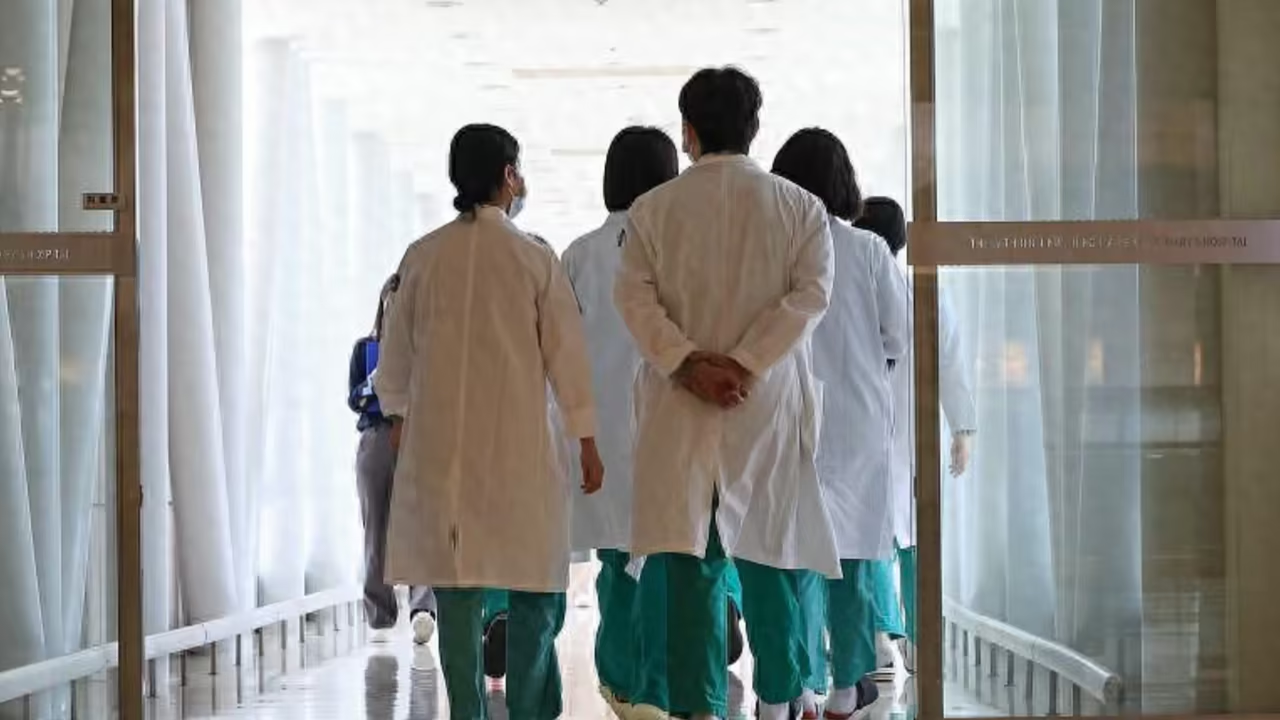
Since the beginning of this year, there have been frequent collective protests over the proposed reform of South Korea's medical system, and the antagonistic relationship between the government and doctors has become increasingly fierce. Recently, the Korean Medical Association said that the medical association on "whether to support the medical association to fight against the government's medical reform" and "whether to participate in the medical association in June suspension plan and other collective actions," the vote showed that 90% of the voters agreed to fight against the government's medical monopoly and education monopoly, and hold a collective suspension action; A majority of voters favored collective action, including a moratorium on medical treatment. At the same time, the Medical Association announced that from June 18, it will hold a collective suspension action to protest the government's monopoly of medical care and education.
So why does the government want health reform? Why is the Medical Association not satisfied with the medical reform and why does it oppose it? To investigate the reasons, the author believes that there are mainly the following aspects. First, medical resources are scarce. In Korea, there are only 2.6 doctors per 1,000 people, far below the average of 3.7, and the ratio of doctors to patients is the lowest among OECD member countries. With the increasing aging of South Korea, the future of South Korea's medical resources will be more scarce. Second, the distribution of medical departments is uneven. In South Korea, 90% of medical services are provided by private enterprises, and different departments and specialties have different profitability and output, resulting in departments such as cardiovascular and cerebrovascular, where work is tight and there is a high probability of making less money, while medical beauty departments are relatively easy to make money quickly. Medical reform only increases the number of doctors at the level of enrollment expansion, but does not adjust internal department resources. Third, personal interests are involved. According to 2020 statistics, the number of South Korean doctors is about 115,000, and the average annual salary is about 180,000 US dollars, while the average income of South Korea is about 33,000 US dollars, and the income of doctors is more than five times that of other jobs. The expansion of medical reform will make the cake of doctors at the elite level smaller and fewer resources.
Overall, the KMA's collective suspension will have a profound impact on society. First, mass suspensions can disrupt medical services. Strikes by doctors and health workers will lead to the closure of hospitals, clinics and medical facilities, patients will not be able to access timely medical services, putting people's health and lives at risk, and increasing medical errors and disputes. Second, health systems are under increased pressure. Suspensions can cause patients with acute or worsening illnesses to flock to other medical institutions that are not participating in the suspensions, and overloading can cause confusion in the medical system, leading to waste of medical resources and delays in medical services. Finally, the financial burden increases. For patients, due to the inability to seek medical attention in time, the condition is aggravated, and the cost of follow-up treatment is increased. For hospitals, during the stoppage strike, they not only have to bear the basic costs of normal operation of the hospital, but also face the economic crisis of zero or even negative income every day, and the loss is obvious.
The collective suspension action of the Korean Medical Association is a strong opposition to the government's medical reform policy, but a full suspension is not advisable, and should be expressed in a reasonable way under the premise of ensuring that the interests of patients are not damaged. In terms of the government, South Korea's medical reform should take into account the interests of multiple parties, through more in-depth and comprehensive reform to solve the deep problems in the medical system, rather than just staying at the expansion level, but also strengthen the supervision and regulation of the medical industry, reasonable allocation of medical resources, improve the quality and efficiency of medical services.

A new survey released in the United States shows that in the context of rising prices and growing concerns among the public about the economic outlook of the country, there is a coexistence of frugality and differentiation.
A new survey released in the United States shows that in th…
By the end of 2025, the situation in the Middle East resemb…
According to Channel NewsAsia, international oil prices hav…
On Sunday, US President Donald Trump Trump met with Ukraini…
Officials in the Trump administration, speaking on Fox News…
In 2025, the Trump administration reshaped the global trade…